Every year, hundreds of new laws are enacted that impact California automotive repair dealers — here’s a brief summary of some key measures for the new year
Sacramento, Calif.—Every year, hundreds of new laws are enacted that impact California automotive repair dealers. Below is a brief summary of some of the key measures, in no particular order, compiled by ASCCA Legislative Advocate Jack Molodanof. They take effect Jan. 1, 2023, unless otherwise noted.
• Minimum Wage Increase. Reminder that effective Jan. 1, 2023, the minimum wage will increase to $15.50 per hour for all employers regardless of size, based on a cost-of-living provision in the state minimum wage law. (SB 3 of 2017). Note that local minimum wage ordinances may be higher.
• Catalytic Converter Record Keeping Requirements. This new law requires Core Recyclers that buy catalytic converters from auto repair dealers to maintain a written record that includes physical business address and phone number, business license number or tax I.D. (AB 1740)
• Prohibited Purchases of Catalytic Converters. Prohibits Core Recyclers from purchasing catalytic converters from anybody other certain specified sellers, including automotive repair dealers. (SB 1087)
• Vehicle Exhaust Systems. Requires a court to notify DMV to place a registration hold on a vehicle found to have noncompliant modified muffler until court presented with a certificate of compliance from a referee authorized to test decibel levels starting in 2027. (AB 2496)
• Wage Transparency. Employers with more than 15 employees are required to make pay range information for a position available to employees and include it in job postings. Companies with 100 or more employees are required to submit pay data and wage history to the state. (SB 1162)
• Bereavement Leave. This new law requires employers with five or more employees to provide employees up to five unpaid days of bereavement leave upon the death of a family member. (AB 1949)
• Protection for Off-Duty Marijuana Use. This new law makes it unlawful for an employer to discriminate on the basis of a person’s use of cannabis off the job and away from the workplace or based on an employer-related drug test that found non-psychoactive cannabis metabolites in the person’s hair, blood, urine, or other bodily fluids. The law takes effect January 2024. (AB 2188)
• Expansion of Definition of Family Leave. Expands the list of individuals which an employee can take family care or medical leave to include a “designated person” who is either related by blood or whose association with the employee is equivalent to a family relationship. (AB 1041)
• Employees May Leave Work during Emergency. This new law prohibits an employer, in the event of an emergency condition, as defined, from taking or threatening an adverse action against any employee for refusing to report to, or leaving, a workplace within the affected area because the employee has a reasonable belief that the workplace is unsafe. (SB 1044).
• CalSavers Retirement Savings. Starting Jan. 1, 2023, employers with 1-4 employees, that do not offer a retirement savings program, can start to register with CalSavers. This segment of employers has until Dec. 31, 2025 to register their business with CalSavers. (SB 1126).
• New Changes to Consumer Privacy Act. There are changes from the current California Consumer Privacy Act (CCPA) including that CCPA no longer includes an employee exception, which means that employees have the same rights as other consumers when it comes to protecting privacy information.
• Smog Check Equipment Security & Fraud Prevention — Biometrics. This BAR regulation requires smog check stations to buy and use biometric devices (e.g. palm reader and web camera) when performing a smog check inspection. This regulation took place on Oct. 1.
• Smog Check STAR Program Updates. This BAR regulation amends 1) STAR eligibility criteria, 2) provides STAR suspension process consistent with statute and 3) deletes outdated Gold Shield Program requirements. This regulation took place on July 1.
• BAR Disciplinary Guidelines. BAR updated existing disciplinary regulations by establishing laws and regulations training option as a rehabilitation option for automotive repair dealers as a condition to probation. This regulation took effect April 1.
• Smog Check Consumer Assistance. BAR passed regulations that increase consumer repair assistance by providing higher contributions based on vehicle model year, reducing pre-repairs diagnostic fees for low-income vehicle owners and removes unnecessary eligibility restrictions pertaining to vehicle registration. This regulation that took effect on Jan. 20.
• Covid-19 Supplemental Paid Sick Leave. This law extends California 2022 Covid-19 Supplemental Paid Sick leave to Dec. 31, 2022 and creates a program that will reimburse qualifying small businesses for costs incurred providing employees with Covid-19 Supplemental paid sick leave. This law took effect on Sept. 29. (AB 152)
• Covid-19 Notice Requirements. Requires, until Jan. 1, 2024, employers to notify employees of potential Covid-19 exposure by prominently displaying in the workplace a notice of Covid-19 case related information for a minimum of 15 calendar days. (AB 2693)
• Three New State Holidays. AB 1655 adds June 19, known as a Juneteenth, as a state holiday. AB 2596 recognizes Lunar New Year as a state holiday and AB 1801 designates April 24 as Genocide Remembrance Day.
• Green House Gases. This new law declares that California become carbon neutral by 2045 or earlier. It also requires the state to reduce statewide greenhouse gas emissions by 85% compared to 1990 levels. (AB 1279)
NOTE: This summary has been provided for informational purposes only and is not intended and should not be construed to constitute legal advice

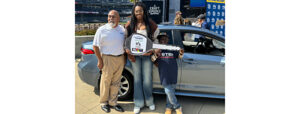



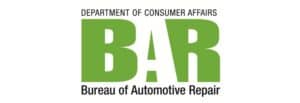
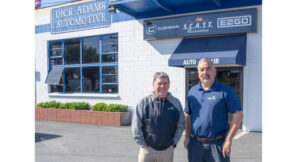
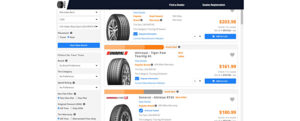
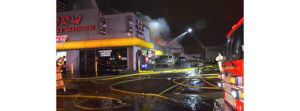

Comments are closed.